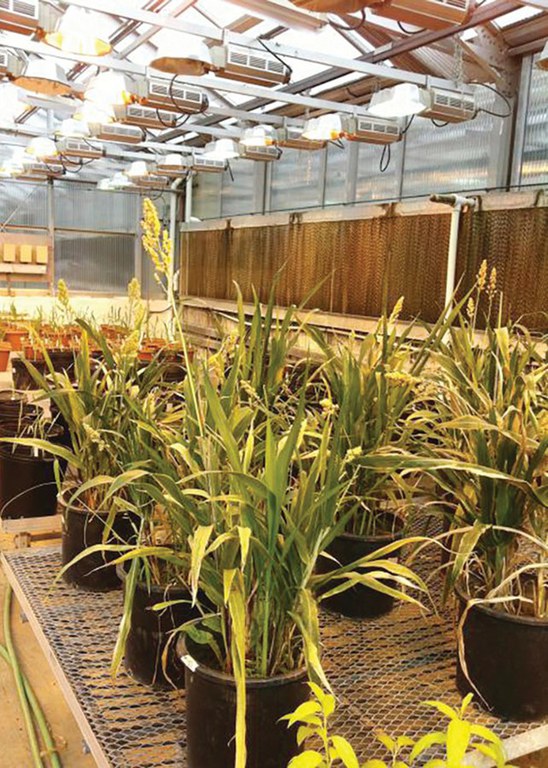Posted: March 17, 2022
Disease resistance in sorghum germplasm lines is gauged for production on Pennsylvania farms.
With sorghum poised to become an important crop grown by Pennsylvania farmers, researchers in the college recently tested more than 150 germplasm lines of the plant for resistance to a fungus likely to hamper its production.
Sorghum, a close relative to corn, is valuable for yielding human food, animal feed, and biofuels. Perhaps its most notable attribute is that it produces gluten-free grain. Resistant to drought and needing a smaller amount of nutrients than corn to thrive, sorghum seems to be a crop that would do well in the Keystone State's climate in a warming world. But its susceptibility to fungal disease is problematic.
"In other locations where sorghum has been grown for a long time, it is attacked by a fungal pathogen that causes a disease called anthracnose leaf blight, which diminishes its yield," said study co-author Surinder Chopra, professor of maize genetics.
In findings published in Crop Science, Chopra and colleagues reported that the anthracnose leaf blight symptoms were observed on older and senescent sorghum leaves in Pennsylvania. After evaluating the performance of the 158 experimental lines and commercial hybrids of sorghum in field and greenhouse tests, the researchers discovered sources of resistance to anthracnose leaf blight.
--Jeff Mulhollem
Features
Fostering Forests
Across the United States, forests face unprecedented threats, and scientists in Penn State's College of Agricultural Sciences are conducting novel and complex research to conserve them.
Buzzing With Purpose
Community scientists work to protect Pennsylvania's wild bees
Conservation Reimagined
Exploring new approaches to cope with a changing climate



